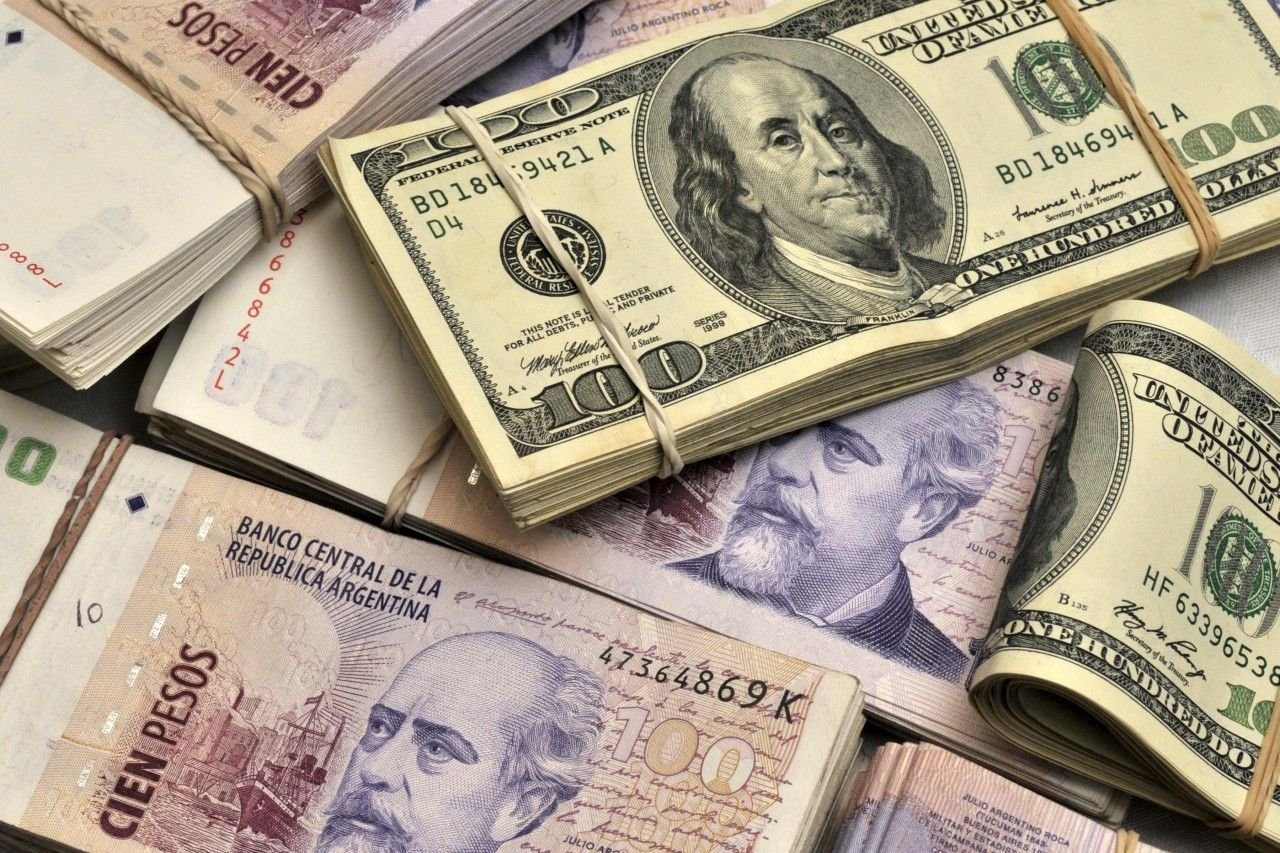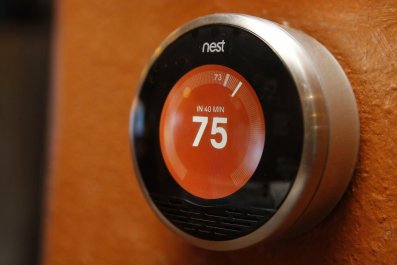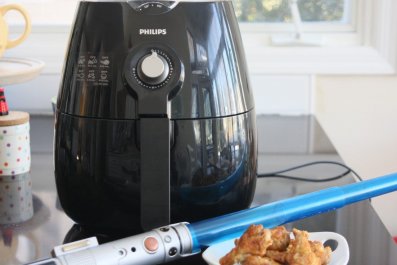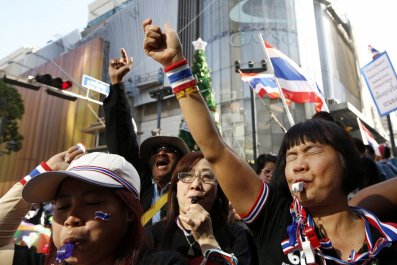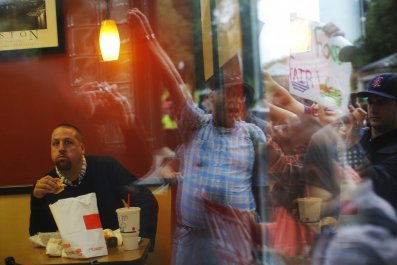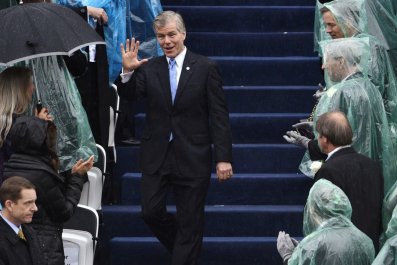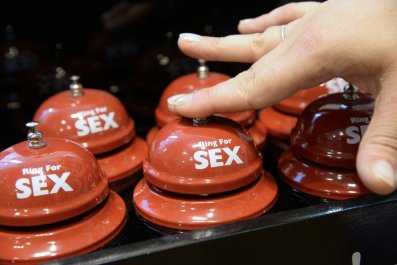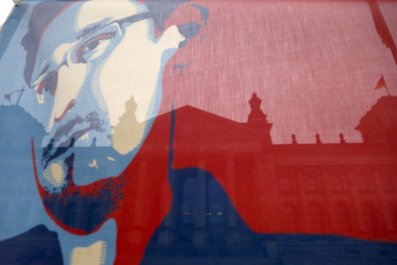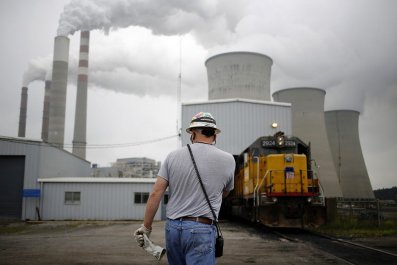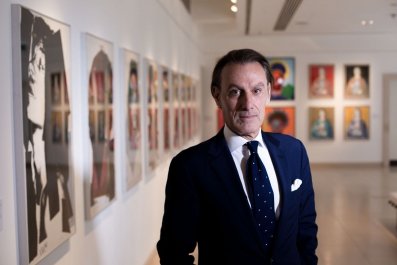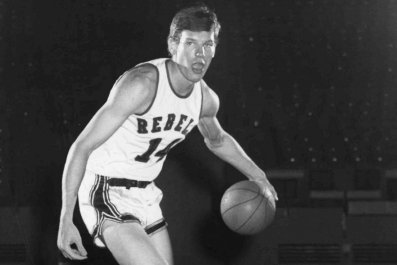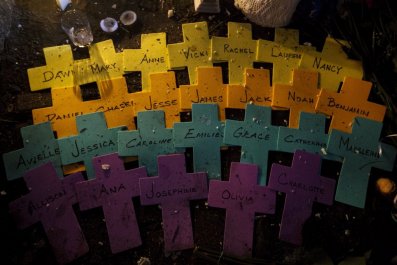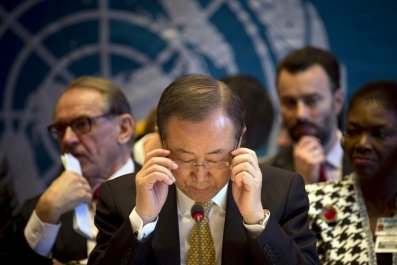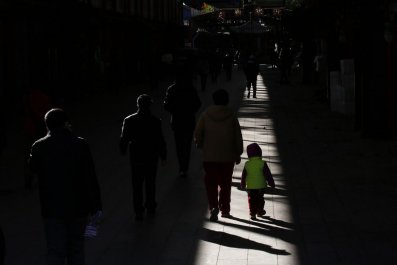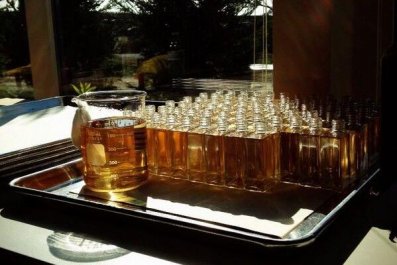They have become nearly as coveted, and almost as elusive, as precious gems. In Argentina and Venezuela, two of the most economically unstable countries in Latin America, finding U.S. dollars has become a quixotic journey entailing trips abroad by air, land and sea, suitcases overflowing with cash, illegal cash advances and clandestine visits to currency dens.
Greenbacks, stable and strong, are a great hedge when double-digit inflation is making the prices of basic food products soar beyond the reach of many. A vast gap between the official and black market rate for dollars in these countries has created a highly lucrative, albeit risky, business opportunity.
As creative and increasingly desperate people in Argentina and Venezuela come up with even more complex schemes to get their hands on dollars - which are heavily restricted in both countries - and resell them in the underground market, authorities clamp down on these currency hunters, forcing both sides to continuously adapt their strategies.
Both Argentina and Venezuela have focused on growth without regard to inflation, regulate access to foreign currencies and don't give their central banks much autonomy, says Anna Szterenfeld, Latin America analyst at the Economist Intelligence Unit. "These are really the two outlier countries," she says. "The governments have been very controlling, very interventionist." Because of that, foreign investors have fled. As have the dollars.
In 2012, the Argentine government made it illegal to buy dollars for saving, and inflation - which has dogged the country for decades - skyrocketed. The government says it hovers at around 10 percent but independent economists say it is at least triple that. Don't know who to believe? Consider this: the International Monetary Fund censured Argentina early last year for persistently submitting unreliable economic data.
Hordes of Argentines who craved dollars headed to Colonia de Sacramento, an Uruguayan town 34 miles east of Buenos Aires. After an hour-long boat ride across the choppy Rio de La Plata, these currency tourists would go straight to the nearest dollar-dispensing ATMs (Uruguayan ATMs are unique in the region for giving users this option), max out card after card - theirs and those of their friends - and stuff their booty into backpacks.
Colonia, with its cobblestoned streets and frozen-in-time ambience, has for decades been a popular tourist destination for Argentines. Its riverfront draws couples to the narrow docks jutting over the water near the town's ancient fort and its shops are brimming with kitschy souvenirs and organic produce. But at the height of the Colonia Dollar Tours, as the dollar-hunting invasion became known, crowds rushed past the scenic patios and restaurants toward banks and ATMs. Lines to withdraw cash snaked for several blocks. The scheme even became a headache for Uruguayan residents who did not want to waste their mornings standing in line but struggled to find ATMs that still had cash by the end of the day.
Their knapsacks filled with dollars, many Argentines getting off the ferry from Colonia would go straight to downtown Buenos Aires. A pedestrian street in the downtown area, Calle Florida is swarming with loitering men who expertly scan passersby, trying to discern intentions in their expressions or gait. During a recent visit, a young man wearing a conspicuous fanny pack hissed "Cambio, cambio" - "change." Police officers stood nearby as he haggled the exchange rate with a potential client.
With terms settled, the man walked his new client down the street, through a small shopping mall, up a flight of stairs and into a small office furnished with just a desk and an old couch. "100s?" asked the man sitting behind the desk. He started pulling out thick wads of bills as several more young men walked in and sat on the couch, observing the transaction quietly.
A few minutes later, the client walked out with his pockets full of "blue dollars," or black-market dollars. (According to one theory, illegal greenbacks became baptized "blue dollars" in honor of blue chips, stocks that have a record of paying stable dividends for prolonged periods.) While a dollar at the official rate sells for 6.8 pesos, the blue dollar has soared to 11.5.
In Venezuela, where inflation reached 56.2 percent in 2013, an even more complex scheme evolved as the government made getting dollars nearly impossible. Greenbacks can only be obtained with approval from Cadivi, the national currency board, or through a system of opaque auctions. Cadivi, which has been plagued by reports of corruption, has set an annual limit of $3,000 for credit card usage abroad, $500 for cash withdrawal and $400 for online purchases.
In order to cash in on the credit card dollar allotment, Venezuelans must show an airplane, bus or boat ticket for a trip out of the country. If Cadivi approves their request, they pack their bags and head off. Last year, as the local currency, the bolívar, depreciated and the gap between the official and black market rates for dollars expanded, international flights quickly filled up. The Caracas Simon Bolívar International Airport handled a record 12 million passengers in 2013, 12 percent more than the previous year. Some of the most popular destinations for these currency tourists are Ecuador, Peru, Panama and Miami, as well as any other place they have a friendly couch to crash on.
Many of those flying out of Venezuela carried several credit cards - one or a few were theirs. The other cards belonged to friends and family who had purchased airline tickets in order to activate their $3,000 credit card allotment but who had decided to avoid travel expenses and stay home.
Once at their destination, dollar-hunting Venezuelans headed to places displaying "We accept Cadivi quotas" posters. There, they would have their cards "scraped" - swiped - and for a commission (in some cases as high as 22 percent) receive dollars.
Back in Venezuela, many hit the black market, where a dollar gets nearly 73 bolívars, well above the official rate of 6.3. Having paid around 18,900 bolívars to get $3,000 at the official rate, they could then sell that amount for approximately 219,000 bolívars on the black market. Even after accounting for the plane ticket and other travel expenses, "you have more money than if you had worked an entire year on minimum wage if you exchange it in the parallel market," says Bárbara Lira, an economist at ODF Grupo Consultor, a Venezuelan economic consulting firm.
Authorities in Argentina and Venezuela have been trying to root out these schemes. In May, the Central Bank of Argentina asked credit card companies to put a limit on ATM withdrawals. "Each card and each bank implemented this in its own way," said an official at the Central Bank who requested anonymity because of the delicacy of the matter. "In most cases, a monthly extraction limit of $50 for neighboring countries and $800 for other countries was established."
In Venezuela, where those who obtain dollars fraudulently can go to jail for up to seven years, the police and Cadivi have been searching passengers and deactivating credit cards emblazoned with names that do not match those on boarding passes. Last week, Venezuelan President Nicolas Maduro announced that Cadivi will be disintegrated and that the National Foreign Trade Corporation will take over its functions.
Still, new schemes are emerging as inflation grows. New companies allow people to send dollars to Argentina from abroad, and while the money is delivered in pesos, the conversion is done at the black market rate.
Venezuelans have been sending more remittances abroad, especially to Colombian towns near their country's border (those approved by Cadivi can send up to $900 per month to relatives). Many then travel to these places to pick up the remittances - either from their family or from people they had paid to say they are so - and bring the dollars back to Venezuela to trade into bolívars in the black market.
Earlier this month, according to regional papers, the Venezuelan government said it would get in touch with its Colombian counterparts to discuss the matter.
In the meantime, people who want to get their hands on a few dollars, quickly, can do so by logging into QueBarato, an online market. There, Venezuelans solicit or buy dollars. WilfredoPerez is auctioning off $2,000, supervisor30@8FAFAD is selling $350 and christopher.ayala.perez@8FE95E is trading $200 cash. Their posts are bracketed by those of people looking to buy dollars. It's anonymous, but still risky.
"We are going hard against the accomplices that are plundering the nation, that are draining dollars from a nation that places its dollars in the development of the country," said Maduro during a televised speech in October. "These are options that bleed the fatherland."



